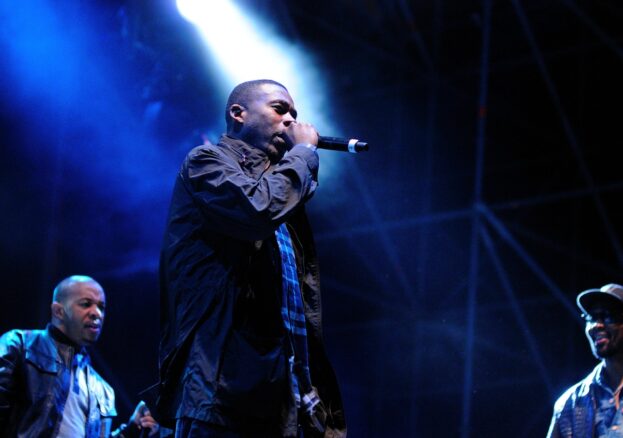
Dub poetry is a form of performance poetry that emerged in Jamaica in the 1970s, combining reggae rhythms with politically and socially conscious lyrics. The genre spread to the UK and other parts of the world, where it has continued to thrive and evolve.
Dub poets often use Jamaican patois (a creole language spoken in Jamaica) and other elements of Jamaican culture in their work, such as Rastafarianism and dancehall music. Their poetry is usually performed with a musical accompaniment, and may include chanting, singing, and other vocal techniques.
The term “dub” comes from the practice of “dubbing” in reggae music, which involves manipulating and remixing recordings to create new versions of songs. Dub poets similarly manipulate language and cultural elements to create their own unique form of poetry
In the UK, dub poetry has been an important tool for expressing the experiences and struggles of Black communities, particularly in the context of racism and discrimination. Some notable UK dub poets include:
- Linton Kwesi Johnson – A pioneering dub poet and political activist, Johnson was born in Jamaica and moved to the UK in the 1960s. His work often addresses issues such as racism, police brutality, and the immigrant experience.
- Benjamin Zephaniah – Born in Birmingham to Jamaican parents, Zephaniah is a poet, writer, and musician who has been performing since the 1980s. His work covers a wide range of topics, including social justice, animal rights, and love.
- Jean “Binta” Breeze – Originally from Jamaica, Breeze moved to the UK in the 1980s and has been a prominent figure in the dub poetry scene ever since. Her work often explores issues of identity, migration, and cultural heritage.
- Mikey Smith – A Jamaican-born poet who moved to the UK in the 1970s, Smith was a key figure in the early years of the UK dub poetry scene. His work was known for its fiery political content and strong social commentary.
- Roger Robinson – A Trinidad-born poet and performer, Robinson has been active in the UK dub poetry scene since the 1990s. His work often addresses issues such as racism, gentrification, and mental health.
Today, dub poets continue to use their art to address social and political issues, including racism, poverty, and inequality. They also explore personal experiences and emotions, using the rhythms and melodies of reggae music to add depth and intensity to their work.
In addition to performing live, dub poets also publish their work in books and online, making it accessible to a wider audience. Many of the early pioneers of dub poetry, such as Linton Kwesi Johnson and Mutabaruka, continue to inspire new generations of poets and performers.
Overall, dub poetry remains a vibrant and important form of artistic expression, offering a powerful voice for marginalized communities and highlighting the ongoing struggles for social justice and equality.
